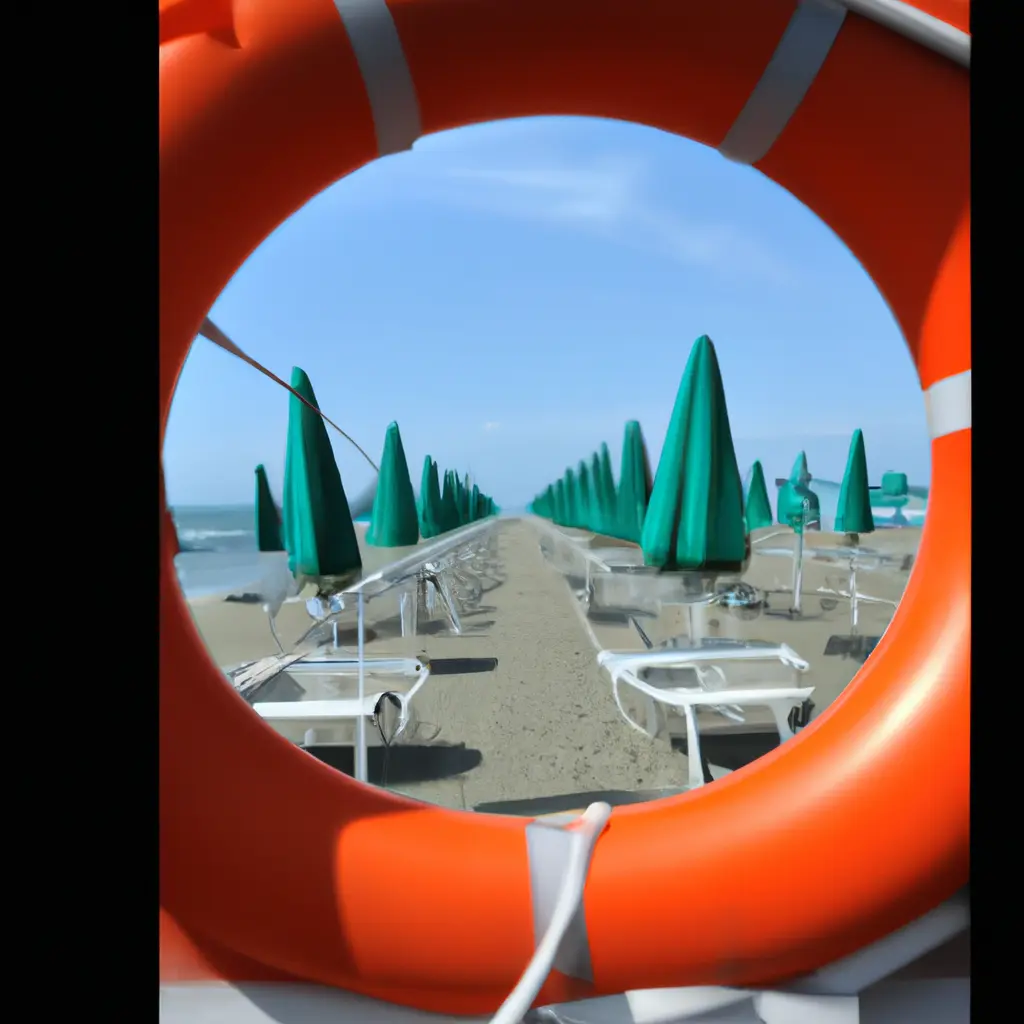Summer at the sea: expensive and fewer families on the beach.

This year Italians, whether they've been on "budget" beaches in Albania or Montenegro, or have been forced to stay home due to high prices, seem to be retreating for Ferragosto. Foreigners are doing well, though they are not present in all directions, but often they limit themselves to visiting classic places such asRome, Florence, Venice, and possibly the Amalfi Coast and Capri. Thus, Italian tourism is experiencing a somewhat faded Ferragosto.
How does the president of Federalbergi, Bernabo Bocca, summarize?
"Things are going not bad, of course, but not as well as they should be during this period."
The Minister of Tourism, Daniela Santanche, does not believe the catastrophic data, but she is not celebrating a victory either; instead, she is focusing on future strategy: "I wouldn't say we're experiencing a decline, but I wouldn't call it a success either. I would say that finally we can start discussing tourism and planning the next steps. In fact, this is the first year without pandemic-related restrictions: we don't have 'drug-like' data from emergency measures, and therefore, in a sense, we can talk about a 'zero' year."
According to Confcommercio, about 14 million Italians are on vacation during the Ferragosto week, mostly staying in Italy and spending a total of around 7 billion euros. According to a study by Cna Turismo e Commercio, there were 25 million visits from August 11 to 20, generating a turnover of over 10 billion euros. This is a record result that allows foreign tourists to offset some of the inconveniences associated with Italian holidaymakers.
Away from the sea
From beach loungers and umbrellas, and most importantly, from high prices. Unlike beach resorts, art cities are thriving. But for Italians, for an average family of four accustomed to traditional vacations this month, the situation is not so good. On the other hand, foreigners are returning to Italy and setting records for attendance: mainly citizens from the USA and Asia. What has happened to Italian families, who have historically focused on the beaches? Many Italians have been forced to change their minds primarily due to an empty wallet. With inflation, expensive mortgages, airfares, and transportation costs (including gasoline), Italians prefer to sit and wait for better times. Or they take last-minute offers (although few hope for that). The key phrases of this overly compressed summer have been: fewer days and extreme last minute. Gas prices and inflation are not helping. "It's a tough summer," says Francesco Caizzi, president of Federalberghi Puglia. "Purchasing power has decreased, and the cost of gasoline limits travel: our market is northern Italy, and covering 1700 kilometers to come on vacation to Puglia becomes a significant expense, not to mention the price of plane tickets. There is also a lack of infrastructure, which is the driving force of tourism, such as ports, railways, and highways."
From Gargano to Salento, the tourism industry is paying the highest price. "We are noticing a slight decline in arrivals after a 5% increase last year. Now we have to wait until the end of summer, although the extreme heat has played a cruel trick on us, especially affecting nearby tourism in Salento. We have already lost all the days with bad weather this year." With 45-degree scorching days in July, many have opted out of beach trips on weekends.
13 May 2025
14 May 2025
13 May 2025
14 May 2025
14 May 2025

In Versilia, the swimming season continues at a steady pace, day by day. And Maremma is also experiencing an unexpected drop in attendance. If you head north to Venice, the resorts are more expensive, while the mountains and art cities are thriving. This is not a record season for Sardinia either, with its crystal-clear sea and white beaches that rival the Caribbean. "Sharm El Sheikh is cheaper, and I think many Italians have chosen to go abroad: to get to Sardinia, you need to take a plane or a ferry, and the prices are outrageous," says Paolo Manca, a representative of Federalberghi Sardinia. "During the week of Ferragosto, we are looking at last-minute options: this is a bet on booking just a few days before the trip. For example, we noticed that a few months ago, a ferry ticket with a car and a cabin for four people cost up to 1700 euros, and now the same price is half that because the ferry didn't fill up."
Apparently, this is not a record season for Rimini either. "This is the worst summer in the last 20 years," admits Mayor Jamil Sadegholvaad, who is also the president of "Visit Romagna" and is well aware of the situation. Empty umbrellas (especially Italian ones) are also seen in Ponza and Ventotene, with attendance dropping to 40% (as of today). As for the type of clients, it is clear that five-star hotels and premium locations are always busy. But even a popular region like Sicily is showing signs of fatigue, both due to exorbitant transportation costs and serious issues related to the heat and wildfires. Meanwhile, there are Italians who are organizing their vacations despite the high prices and choosing to spend them in tents, camper vans, or RVs. This is a choice for budget tourism, which has found some unexpected supporters this year.
Tags
Comment
Popular Offers

Subscribe to the newsletter from Hatamatata.com!
Subscribe to the newsletter from Hatamatata.com!
I agree to the processing of personal data and confidentiality rules of Hatamatata











